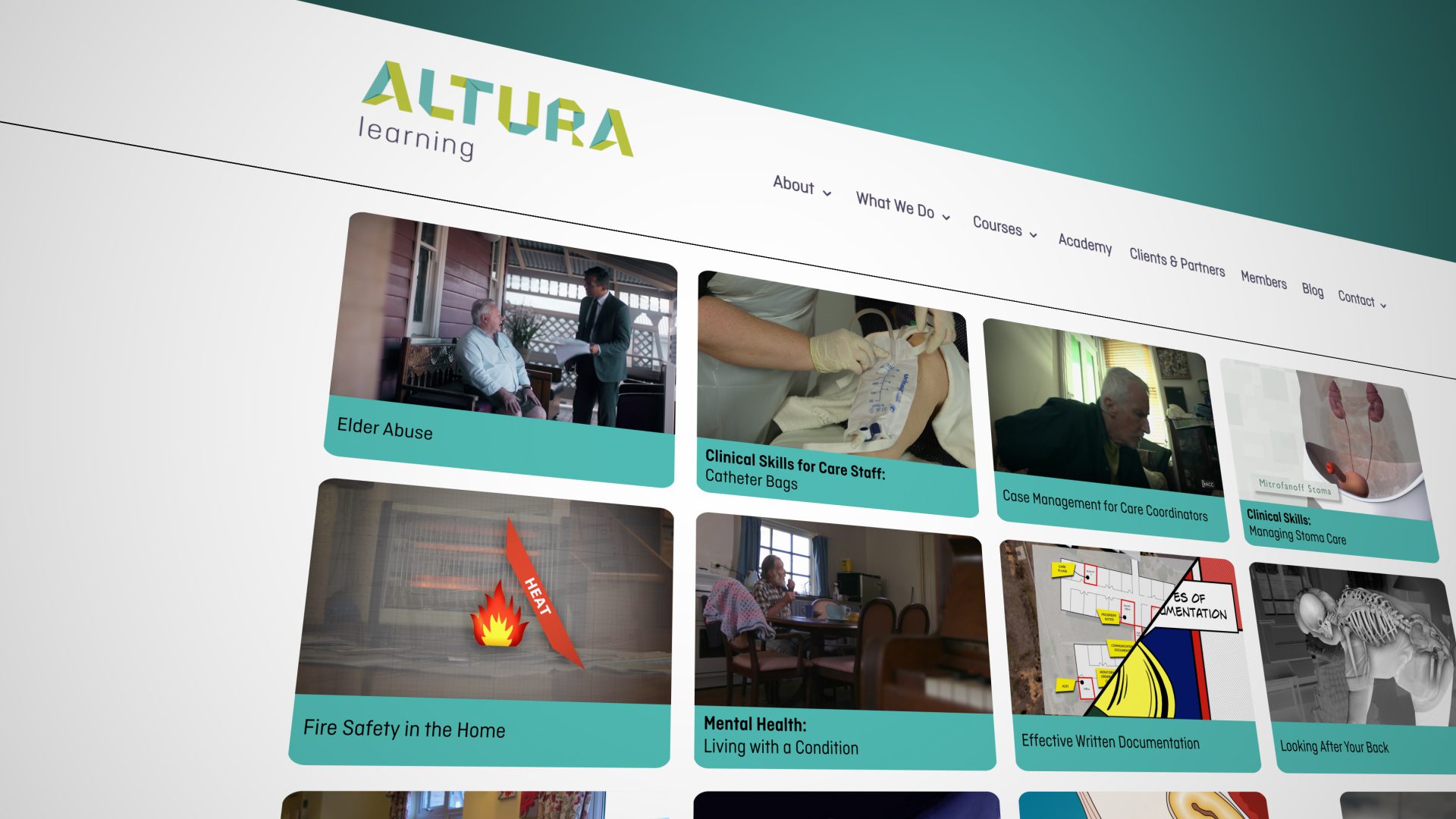Altura Blog
Analytics – Comprehensive & Powerful Reporting comes to Bridge
06/04/2021On April 22, 2021 the highly anticipated redesign of the…
On April 22, 2021 the highly anticipated redesign of the…
As residential care providers prepare for the implementation of the…
The 3rd March 2021 marks World Hearing Day 2021. This…
How do we identify and configure pathway-specific content in the Bridge library? The following section describes several techniques.
Technology can enable us to deliver on many of the…
Digital Leadership in Social Care Programme The National Care Forum…
Did you know that dementia is not a disease in…
Our essential assessment is generally comprised of 15 questions. Usually they are true or false, multiple choice, fill the gap, or if the course allows, sorting/sequencing questions. The questions reflect the content of the video and are designed to ascertain if the learner has understood the content presented in the video.

Every set of Coordinator resources includes a training game that…

Bridge has a handy feature which allows Learning Coordinators to…
When you’re working in the home care setting as a care/support worker, you may be the only person who sees a client on a regular basis. It’s expected that older people will have changes in their care or support requirements as they age or as their condition deteriorates so, as a home care worker, you are in the perfect position to recognise and act on these changes to ensure the person is supported appropriately.
Technology can enable us to deliver on many of the…
We are excited to announce the new strategic partnership between…
For LGBTI people, the prospect of having to ‘come out’…
As learning and development professionals we know that there are a variety of ways that adults learn and there are a multitude of learning theories to support this.
The extension assessment can be given to all staff and it’s particularly useful for advanced practice nurses such as RNs who are required to reflect on their professional practice.
When you’re working in the home care setting as a care/support worker, you may be the only person who sees a client on a regular basis. It’s expected that older people will have changes in their care or support requirements as they age or as their condition deteriorates so, as a home care worker, you are in the perfect position to recognise and act on these changes to ensure the person is supported appropriately.
Thorough and appropriate documentation is a fundamental requirement when delivering care or support to a person. Not only does poor documentation impact on resident care, it could also impact you personally and your organisation if your notes are examined in a court or during an inspection.
Our essential assessment is generally comprised of 15 questions. Usually they are true or false, multiple choice, fill the gap, or if the course allows, sorting/sequencing questions. The questions reflect the content of the video and are designed to ascertain if the learner has understood the content presented in the video.
There are a range of learning theories that come and go from popularity and the more we research the topic we realise that there are many different ways to explain how adults learn and how to best support them.